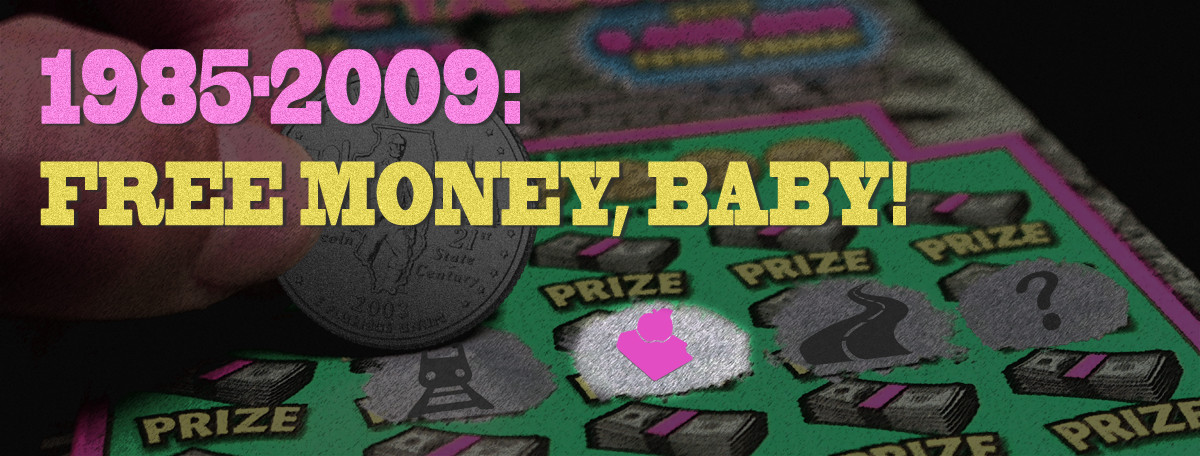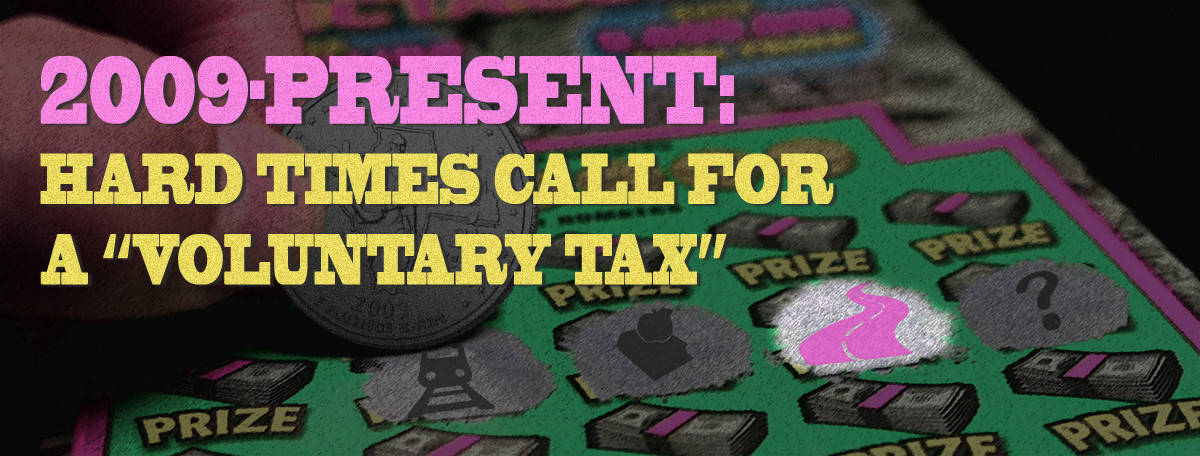Why The Illinois Lottery’s Been No Jackpot For Schools
By Miles Bryan

Why The Illinois Lottery’s Been No Jackpot For Schools
By Miles BryanGail Tate worries about Illinois schools.
“I hear the stories, especially this past year, about every school district having to borrow money,” she says. “Schools are having to close.”
Yet, Gail says, “the lottery continues!”
Gail, a retiree originally from Chicago and now living in Naperville, asked Curious City: Where are the profits from the Illinois Lottery going? I thought they were going to education.
Gail says she was old enough to vote when the lottery passed the Illinois General Assembly in 1973 and — in her recollection — it was created to fund education in the state.
It’s a common belief: Gail says her friends share it, and there’s plenty of evidence it’s widespread online, too.
@richardroeper There is the ethos that when you buy an Illinois lottery ticket the money goes to education. Well that’s how it was sold.
— Anthony Yarus (@ablnk) December 24, 2015
This is terrible. I thought the lottery was supposed to fund education in Illinois. https://t.co/MsRVExsvyj
— smarski (@smarski) August 1, 2016
How is it that the illinois lottery is supposed to go to the schools and we are currently cutting the education of the kids
— Vivian Ingraham (@ingraham_vivian) January 13, 2016
Ok … a common belief, but a correct one?
We dug into old lottery legislation, pored over spreadsheets, interviewed lottery experts, and we found that, yes, most of the lottery’s annual profits do go to the state’s education fund. We’ve packed a tweetable answer along those lines below, complete with a detailed chart.
But there’s something more at the heart of Gail’s question, and data (let alone a tweet) won’t address it. If Gail, her friends and a whole lot of Illinoisans suspect the lottery and schools are joined at the hip, what’s the real relationship between the two?
That relationship, it turns out, is complicated, has proven slippery and — importantly — it has changed a great deal since the lottery opened for business four decades ago. With literally billions of dollars of lottery revenue coming in while Illinois schools sometimes struggled …
Well, that’s a story worth more than a tweet, and we invite you to follow along.
The Tweetable answer
In fiscal year 2015, 24 percent of Illinois Lottery sales ended up in the state’s public K-12 schools.
That 24 percent comes after prize payouts and administrative costs, of course. A smidge of the sales (.29 percent) went toward the state’s Capital Project Fund, which pays for public construction projects.
In raw figures, the lottery’s contribution to schools (technically, payments into the Common School Fund) was $678 million, which seems impressive until you know that that contribution made up just 6.6 percent of Illinois’ public schools spending.
This is just a recent snapshot, though. To start seeing the complexity of the relationship between the lottery and school funding, click through the three eras in the chart below.
There are surprises there, starting with the origin of the lottery in the early ‘70s.

The idea that the lottery was created to fund education in Illinois might be prevalent, but it happens to be off base.
“I would say that’s probably the most prevalent myth about Illinois government, that the lottery was created to fund education,” says Charles Wheeler, who covered state government for the Chicago Sun-Times in the 1970s. He’s currently the Director of the Public Affairs Reporting Program at the University of Illinois, Springfield.
“That’s simply not the case,” he says. “The lottery legislation was part of a compromise package whose main purpose was to provide additional funding to help out the Chicago Transit Authority.”
Or, as Wheeler put it in a 1973 Chicago Sun-Times article: “The lottery was included in the [Regional Transit Authority] compromise as a potential source of revenue to replace funds designated for an annual subsidy to the RTA.”
Wheeler points out that early drafts of the final legislation would have dedicated at least some profits to education. Citizens who didn’t follow the entire debate closely, he says, may have had actual events “overshadowed by the expectation that ultimately [the lottery] will be for schools.”

For its first decade, the Illinois Lottery deposited profits into the state’s General Revenue Fund. But then, in 1985, something strange happened. In a moment of life imitating art, Illinois lawmakers decided that lottery profits should in fact go towards education funding.
“Legislators were, I guess, frustrated or tired or fed up with having to explain to constituents, ‘No, we didn’t pass it for the schools,” Wheeler says. “So they finally just said, ‘Alright, go ahead. We will just put the money into the schools.’”
With Illinois Lottery money routed to an education fund post-1985, schools saw a big boost, right?
Not really.
Lottery funding for education has turned into something of a shell game, according to Christopher Mooney, Director of the Institute of Government and Public Affairs at the University of Illinois.
Here’s what he means. Let’s say the General Assembly intended to spend 100 dollars in a year on K-12 schools. Without a lottery, the 100 dollars would come from the general fund. But, if the lottery can kick 10 dollars toward schools, legislators have two choices: they could spend money on schools above and beyond the original 100 dollars, or they could lower the contribution from the General Fund.
Mooney says Illinois legislators typically take the second mindset.
“We’ll have the same amount for the schools,” he says, “and we can use that ten dollars for something else.”
Mooney describes legislators’ motivation to approve a lottery or any other form of legalized gambling with two words: “free revenue.” It’s money coming into the state that doesn’t require lawmakers to raise taxes, and risk their constituents’ wrath.
A 1997 article published in State & Local Government Review titled “Lotteries for Education: Windfall or Hoax?” found that, in the period initially following the adoption of an education-funding lottery, state spending on education increases. But over the long term, state spending on education declines. A 2007 New York Times review of state lottery programs concluded that, though lotteries were contributing to education funding, they accounted for a small percentage of school funding and that they were shrinking at the time.
These trends have played out in Illinois:
Mooney says part of the Illinois Lottery’s sluggish overall growth (and its sluggish growth in contributions to education) can be attributed to lawmakers dipping back into the “free revenue” pot; in 1990 Illinois legalized riverboat casino gambling, and in 2009 the state legalized video gambling.
“If there’s this sum demand for gambling services out there, the more opportunities there are, the more that can be satiated in other ways,” he says.

During the Great Recession, state lawmakers changed the lottery in a way that permanently limited its financial contribution to education.
To combat the recession’s effects in Illinois, then-Governor Pat Quinn put together a massive, first-in-a-decade capital bill to fund construction projects (and construction jobs) around the state.
The bill cost tens of billions of dollars. And legislators (surprise, surprise!) turned to the lottery for help.
Roger Eddy was a Republican legislator at the time, serving southern Illinois’ 109th House district. He says legislators felt that the weak economy couldn’t stand a hike in income taxes. “Lotteries and other forms of gaming are kind of a voluntary tax,” he says.
Legislation paired with the 2009 capital bill made two major changes to the lottery. First, it made Illinois’ Lottery the first in the country to be operated by a private manager. The company that won the contract, Northstar, promised annual growth of 10.6 percent a year.
Second, legislators wanted some of that money to pay for capital projects, so they capped how much money the Illinois Lottery pays into the Common School Fund. From 2010 on, the lottery has contributed its 2009 level to school funding, adjusted for inflation. Almost all of the rest of the money the lottery makes is routed into the Capital Projects fund.
Translation: Even if the lottery had an absolutely banner year, and legislators didn’t siphon the money out the other side in the form of decreased state spending, it wouldn’t matter; the lottery’s contribution to education is limited.
That scenario has yet to come up because Northstar struggled to live up to its big promises. Instead, the lottery lost money between fiscal year 2013 and 2014. The company was fired by current Governor Bruce Rauner, but will remain in charge until a new private manager is found.
The siren song of the Illinois Lottery
So, the short answer to Gail’s question is that much of the Illinois Lottery’s profits do go towards k-12 education, and have since the 1980s. Still, the lottery hasn’t lived up to the expectations of lottery players, who may still believe that the money they spend on it goes directly to schools on top of regular state funding. Nor has the lottery satisfied the expectations of lawmakers who turn to it, and other forms of legalized gambling, as a windfall that has no political price.
Gail says she was “shocked” to learn that the lottery was started with commuters, not kids, in mind. She says she doesn’t know whether people who play the lottery regularly are that concerned about where profits go, but “as people hear the story, there might be some who drop off. And then I would suggest they donate directly to the schools.”
Roger Eddy would probably agree with that sentiment. In addition to being a former state representative, Eddy is the current Executive Director of the Illinois Association of School Boards.
“I think everyone gets frustrated when something that was supposed to increase funding for education didn’t turn out to really do it in the manner everyone perceived it would,” he says.
He hopes the General Assembly will somehow expand what’s heading into the General Fund. If that happens going forward, he says, there’d be more money available for education.
“We need to rely on sustainable and reliable sources of revenue to fund our schools, and not play these shell games,” he says.
More about our questioner

Gail Tate grew up in Chicago’s Englewood neighborhood, but she’s lived in the western suburb of Naperville since 1971. She spent 28 years working at AT&T Bell Laboratories, first in the mail room and later as an engineer and director. She also worked at the University of Illinois, Champaign, and Argonne National Laboratories.
Gail says she doesn’t play the lottery, but some of her cousins and in-laws do.
“I’ll educate them,” she says. “I’ll ask, [do] they have the same perception I did? And if they did, then I’ll give them the facts.”
Miles Bryan is WBEZ’s Midday News Producer. Follow him @miles_bryan
